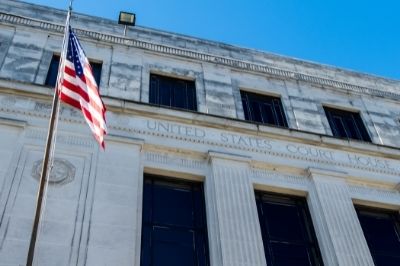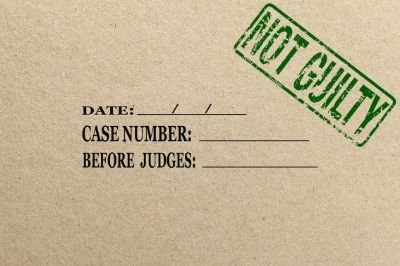Federal Criminal Defense Lawyers in Florida
 If you or your loved one has been charged with a federal crime in Florida, you need to contact a Federal Criminal Defense Lawyer immediately. Our lawyers are members of the Middle District of Florida and are ready to hear your side of the story to come up with the best defense strategy and legal advice for your specific situation. We are open 24/7, give us a call today.
If you or your loved one has been charged with a federal crime in Florida, you need to contact a Federal Criminal Defense Lawyer immediately. Our lawyers are members of the Middle District of Florida and are ready to hear your side of the story to come up with the best defense strategy and legal advice for your specific situation. We are open 24/7, give us a call today.
The Middle District of Florida comprises the counties of Baker, Bradford, Brevard, Charlotte, Citrus, Clay, Collier, Columbia, De Soto, Duval, Flagler, Glades, Hamilton, Hardee, Hendry, Hernando, Hillsborough, Lake, Lee, Manatee, Marion, Nassau, Orange, Osceola, Pasco, Pinellas, Polk, Putnam, St. Johns, Sarasota, Seminole, Sumter, Suwannee, Union, and Volusia.
Court for the Middle District is held in Tampa, Fernandina, Fort Myers, Jacksonville, Live Oak, Ocala, Orlando, and St. Petersburg. Before a Federal Court can hear a case, certain conditions must be met:
- Under the Constitution, federal courts exercise only judicial powers. Meaning the federal judges should only interpret the law through the resolution of actual legal disputes, referred to Article III of the Constitution as “Cases of Controversies”. A court can’t attempt to fix a problem by its own initiative or answer a hypothetical legal question.
- In an actual case or controversy, the plaintiff must have been unfairly treated, in distress, have suffered from the denial of legal rights or legally harmed in some way by the defendant.
- The case must present a level of dispute the law in question was designed to examine, and it must be a complaint the court has the power to resolve.
- Lastly, the case must present an ongoing problem for the case to be uncertain or highly debatable. It must present a clear ongoing problem for the courts to decide on and resolve. Hence, the federal courts are courts of “limited” jurisdiction, because they may only decide certain types of cases as provided by Congress or as identified in the Constitution.
What types of cases are considered federal criminal cases?
Federal criminal cases are those that violate federal law or the Constitution of the United States. Federal courts usually handle fewer cases, however, the cases that are heard or handled in federal court are in most circumstances of great importance or great interest. Some of them include:
- Credit Card Fraud
- Racketeering
- Drug trafficking
- Tax evasion
- Cases between citizens of two different states
- Crimes on federal land
- Bankruptcy
- Illegal wiretapping
- Carjacking/ hijacking
- Kidnapping
- Bank robbery
- Counterfeiting
- Money laundering
- Computer Crimes
- Identity theft
- Mail fraud
- Electoral fraud
- Immigration offenses
- Art theft
- White collar crimes
What can you expect in a federal court case?
In the judicial process of a criminal case the main characters at the beginning are the prosecutor, which in this case is the U.S. attorney and the grand jury. The prosecutor represents the United States in most court cases and the jury reviews the evidence and decides whether there is sufficient evidence to require the defendant to stand trial.
After the person is arrested a pretrial services or probation officer of the court immediately interviews the defendant and investigates of the defendant’s background. This information will be used to help determine whether to release the defendant before trial and impose conditions of release. A person accused of a crime is entitled to release before trial, unless the judge decides otherwise if he/she/they think the accused poses a danger to the community and/or is likely to commit other crimes.
At the initial appearance the judge informs the defendant of the charges filed against him/her/them and considers whether the defendant should be held in jail or release with conditions until a date is set for trial. Defendants who are released may have to follow certain conditions such as drug testing, meeting with or reporting to pre-trial services officer and electronic monitoring.
Then the arraignment takes place, which is a court hearing where the defendant enters a plea to the charges bought by the U.S. attorney. Most defendants (more than 90% according to Federal Court data) plead guilty in return for the government to drop certain charges or to recommend a more lenient sentence. If the defendant pleads guilty, the judge may impose a sentence at that time, however, a later date will more than likely be scheduled for a sentence hearing.
 For most federal cases, judges usually wait for the results of the presentence report, prepared by the court’s probation officer before imposing a sentence. If the defendant pleads “not guilty”, the judge will then proceed to schedule a trial date.
For most federal cases, judges usually wait for the results of the presentence report, prepared by the court’s probation officer before imposing a sentence. If the defendant pleads “not guilty”, the judge will then proceed to schedule a trial date.
In a criminal trial, the burden of proof is on the government, defendants don’t have to prove their innocence, instead the government must provide evidence to convince the jury the defendant is guilty beyond reasonable doubt.
If the defendant is found “not guilty”, he/she/they is released and the government may not appeal, as the U.S. Constitution prohibits “double jeopardy”, in other words someone found “not guilty” may not be tried for the same crime twice. If the verdict is guilty, then the judge will determine the appropriate sentence.
Federal Court of Appeals (Appellate Courts)
The court of appeals hears challenges to district court decisions from courts located within its circuit, as well of appeals from decisions of federal administrative agencies. The losing party in a decision by a trial court in the federal system is usually is entitled to appeal the decision to a federal court of appeals. In a civil case either party may appeal the verdict, in criminal case the defendant may appeal the “guilty” verdict, however, as stated above, the government may not appeal if a defendant is found “not guilty”. In a criminal case either party may appeal with respect to a sentence that is imposed after a guilty verdict.
The court of appeals makes its decision based on the factual findings of the trials, it doesn’t receive additional evidence, it typically overturns the decision only on factual grounds if the findings were clearly erroneous. Appeals are decided by panels of three judges working together, the appellant may present a written legal argument to the panel, in a “brief” form, with the purpose of showing an erroneous verdict was made. By the same token, the appellee (the one defending against the appeal) may do the same to prove why the appeal has no grounds and the court’s decision was correct. Even though many cases are decided based on the written briefs alone, many cases are chosen for an “oral argument” before the court.
A litigant who loses in a federal court of appeals or in the highest court of a state may file a petition for a “writ of certiorari”, which is a legal document asking the Supreme Court to review the case, this of course doesn’t mean the Supreme Court will actually review the case. The court will typically hear the case only if it involves an unusually important legal principle or when two or more federal appellate courts have interpreted the law differently.
In addition to our two Orlando, FL locations we also have locations in: Kissimmee, Sanford, Melbourne, Daytona Beach, Ocala, Lakeland, Tampa, Fort Myers, Sarasota, Miami, Jacksonville. Give us a call today for your Free Consultation, we have payment plans available.
Additional Orlando Florida/Orange County Legal Resources